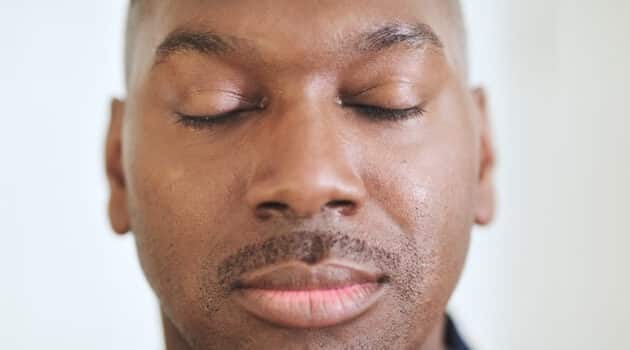
Have you ever seen someone who struggled to keep their face still or made sudden jerking movements that seemed like they couldn’t control themselves? As you can imagine, it can be unsettling and uncomfortable when it’s your own body doing it.
For many people living with movement disorders, tardive dyskinesia symptoms can appear suddenly and change their daily lives in unpredictable and frustrating ways.
Tardive dyskinesia (TD) is a neurological disorder that causes involuntary, repetitive movements of the face, limbs, or torso. These movements can be distressing and can significantly impact a person’s confidence, mobility, and quality of life. Understanding tardive dyskinesia symptoms, causes, and treatment options can help both patients and their loved ones take back some control.
You May Also Like
What Are Some Tardive Dyskinesia Symptoms?
Tardive dyskinesia symptoms can range from mild to severe and may come and go. Some people notice their symptoms only when they are stressed, and others have constant movements that make daily life harder.
Involuntary movements
These movements often involve the face—grimacing, tongue protrusion, lip smacking, or blinking. The limbs and torso can also be affected, leading to twitching or jerking motions that feel impossible to stop.
Impact on daily activities
TD can make it challenging to perform everyday tasks such as eating, speaking, or writing. Many people say it affects their confidence and social life just as much as their physical comfort.
You May Also Like
Worsening with time
Without proper treatment, tardive dyskinesia symptoms may worsen over time, especially if the underlying cause is not addressed. This is why early recognition is key.
RELATED: Facial Tics? It Could Be Tardive Dyskinesia
What Are Some Tardive Dyskinesia Causes?
TD is most commonly associated with the long-term use of certain medications that affect the brain’s dopamine system. These medications include antipsychotic drugs used to treat conditions such as schizophrenia, bipolar disorder, and certain neurological issues.
The exact mechanism by which these medications lead to TD is not fully understood, but researchers, including those at the Cleveland Clinic, say it’s believed to involve alterations in dopamine signaling in the brain. When that balance is thrown off, the nervous system can start sending mixed signals that trigger involuntary movements.
Other risk factors for TD may include:
- Older age
- Being female
- A history of diabetes
- A history of other movement disorders
- Length of time taking dopamine-blocking medications
RELATED: Tardive Dyskinesia: What You Should Know If You Take Antipsychotic Medication

What is Tardive Dyskinesia Treatment Like?
While there isn’t a cure for it yet, TD is treatable.
Managing TD involves a combination of approaches aimed at minimizing symptoms and addressing the underlying cause. Treatment options may include:
Medication adjustments
Sometimes, lowering the dose or switching to another medication can ease TD symptoms—but never make changes without your doctor’s guidance.
Tardive Dyskinesia-specific medications
The FDA has approved certain medications specifically for the treatment of TD, such as deutetrabenazine (Austedo) and valbenazine (Ingrezza). These drugs work by reducing the amount of dopamine in the brain, which can help control involuntary movements.
RELATED: 6 Easy Ways to Manage Tardive Dyskinesia in Public
Botulinum toxin injections
Injections of botulinum toxin (Botox) may be used to target specific muscle groups affected by TD, reducing the severity of involuntary movements.
Deep brain stimulation (DBS)
In severe cases of TD that do not respond to other treatments, DBS—a surgical procedure that involves implanting electrodes in the brain to modulate abnormal brain activity—may be considered.
Behavioral therapy
Counseling, occupational therapy, and support groups can help patients cope with the psychological and social challenges associated with TD, giving them confidence and find ways to adapt to the changes in their movement.

People Also Ask: What is Tardive Dyskinesia?
What is tardive dyskinesia?
Tardive dyskinesia (TD) is when your body makes small, repeated movements you can’t control—like lip smacking, blinking, or tongue movements. It often happens after taking certain mental health medications for a long time.
What are the first signs of tardive dyskinesia?
Early signs may include lip smacking, tongue movements, facial grimacing, or restless movements in your hands or feet. Over time, these can become more noticeable or affect your speech and eating.
Can tardive dyskinesia go away?
Sometimes TD symptoms improve once your doctor adjusts or changes your medication. For others, the movements may stick around but can be managed with other treatments that help calm the body’s extra movements.
Is tardive dyskinesia permanent?
It can be, but not always. With early attention and the right treatment, many people see their symptoms lessen or even disappear. That’s why it’s important to speak up as soon as you notice changes.
How is tardive dyskinesia treated today?
Treatment often starts by adjusting your current medication. Doctors may also prescribe TD-specific drugs like deutetrabenazine (Austedo) or valbenazine (Ingrezza), which help stop the involuntary movements. Supportive care—like therapy, stress management, and even Botox—can also help make everyday life easier.
Living With Tardive Dyskinesia
Living with TD takes patience and self-compassion. If you or someone you love has this condition, know this: you’re not alone, and there is real help out there. The more you learn and the sooner you act, the better your chances of regaining control and comfort in your body.
With the right care and support, tardive dyskinesia symptoms can be managed—and hope restored for those affected by this condition.








